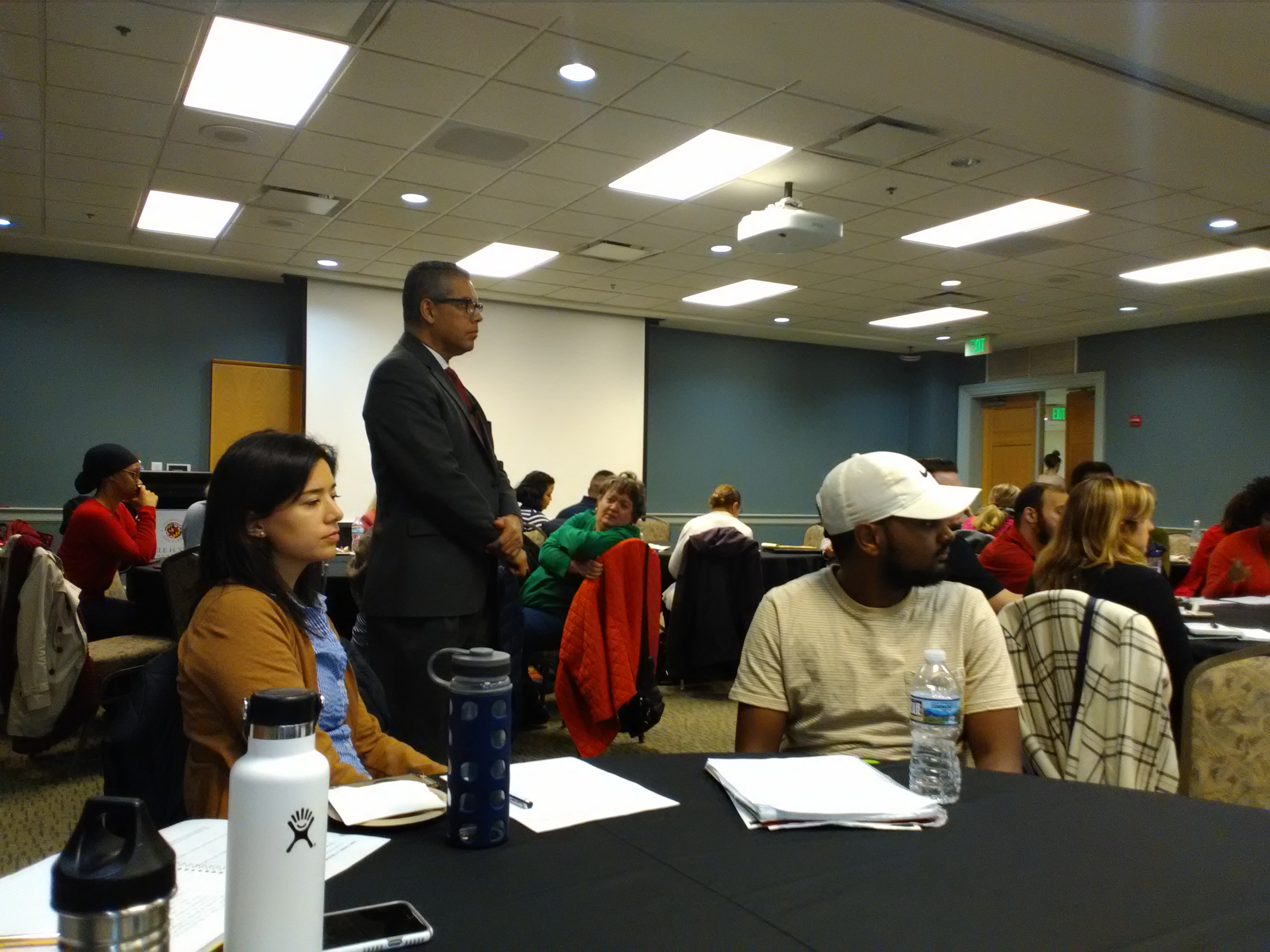By Gabrielle Wanneh
For The Diamondback
University of Maryland students and faculty had the opportunity Tuesday to discuss diversity inclusion efforts on campus with Roger Worthington, this university’s chief diversity officer.
After previous incidents of hate bias on campus, the Student Affairs Diversity Initiative decided to host an open discussion with Worthington in efforts to promote his vision to improve diversity and inclusion on campus, said Kia Weeden, the Department of Resident Life’s staff development and services coordinator.
“I think it’s important for administration to come talk with us and for us to talk with them so that they can see what’s going on,” Weeden said. “Hopefully it will be able to help build bridges and mend things so that we can move forward in a positive way.”
Over the summer, the university announced Worthington as the new chief diversity officer, less than two months after the stabbing of 2nd Lt. Richard Collins, a black Bowie State University student, on this campus.
During Tuesday’s discussion, attendees were able to express opinions on how the university should handle hate bias incidents and hate speech within the campus community. Since the beginning of the semester, police have responded to several hate bias incidents including multiple swastikas.
Ashley Profitt, a junior journalism major, said she thought the event was insightful, especially as a commuter student. The conversation opened up her eyes to what was going on in the university community, she added.
“I’m not in the campus as much because I commute to school. So I often feel as if I’m looking from the outside in.” Profitt said.
When other students and faculty voiced their concerns to Worthington regarding the lack of diversity and work being done to improve it, Profitt said she was surprised.
“When she said that nothing’s really changed, it shocked me,” she said. “I was like ‘Really? It’s still that bad?'”
Since his appointment four months ago, Worthington said he has been working on establishing trust in the community and implementing small solutions. One of these solutions includes sending out a campus climate study in January.
“We need to take the problems that we can identify and deal with them separately. Each one will be in need of a different approach.” Worthington said. “And of course, we need to address them together.”
The university needs to openly and properly address concerns of diversity on this campus, said Nathan Bunch, an advisor for the National Pan-Hellenic Council and Multicultural Greek Council. Bunch was one of many attendees who engaged with Worthington, expressing ideas on how to improve campus climate.
“A lot of people feel like we’ve been talking about the issues for a long and are wondering about what’s happening,” Bunch said. “I believe minorities on campus want to feel like there’s someone who will advocate for them.”
Despite these concerns, Worthington said he believes this discussion is a step in the right direction in efforts to address hate at this university.
“It was a very rich, challenging conversation we had today,” Worthington said. “We don’t have all of the answers that people want to hear, but we do have answers that we feel people should know about.”



